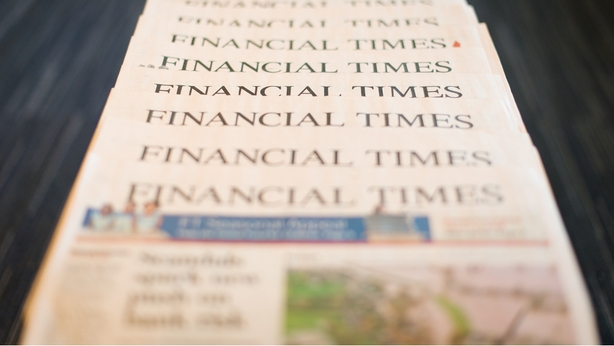Pearson is set to raise $1 billion from the sale of a 22% stake in book publisher Penguin Random House to majority owner Bertelsmann.
This is the British group's latest bid to rebuild following a string of profit warnings.
Hit by a sharp downturn in its biggest markets, Pearson has sold off some of its best known assets in recent years including the Financial Times and the Economist to enable it to invest in its core business of education.

The 173-year-old group said today it would now reduce its stake in the world's biggest consumer book publisher to 25% from 47%.
This will enable it to free up cash to return to shareholders and bolster its balance sheet.
"Today's deal enables us to realise a significant amount of the value that we've helped to create (at Penguin Random House) whilst continuing to be part of what is the world's biggest and best trade publisher," the company's chief executive John Fallon said.
"We'll be using the proceeds to maintain our strong balance sheet, to invest in the ongoing digital transformation of Pearson and return £300m in excess capital to shareholders," Mr Fallon added.
Established as a joint venture between Pearson and Bertelsmann in 2013, Penguin Random House has an enterprise value of $3.55 billion and a list of authors including John Grisham, Arundhati Roy and Paulo Coelho.
Bertelsmann CEO Thomas Rabe said the company had achieved its goal of securing a 75% majority holding, with Pearson pledging to retain its 25% stake for at least 18 months.
As part of the deal, Pearson will receive $968m plus future dividends including a payout of $66m in April 2018.
The two shareholders will take further dividends in future by increasing the book publisher's leverage to two times net debt to core earnings.
Analysts said Pearson had extracted a good price without overly diluting its future earnings.
However the sale did not change the underlying pressures facing the group's sprawling education business.
Employing 35,000, Pearson provides everything from textbooks to school testing, college courses and online degrees around the world.
Having grown rapidly for years, it started to lose its way in 2015 when the US economy recovered, encouraging more people to take jobs rather than go into higher education.
Since then, students have moved to ditch expensive text books for second-hand copies and digital services, hammering Pearson's income and forcing it to cut costs across the business after it reported five profit warnings in four years.
Pearson's shares, down 30% in the last year, fell a further 6% after the company suggested its future dividend would be in the mid-teens, below market expectations of nearer 27 pence.

